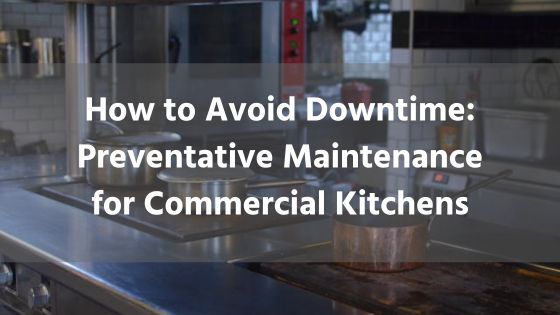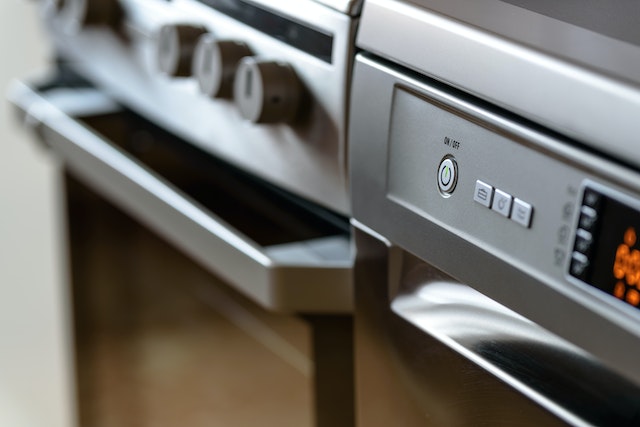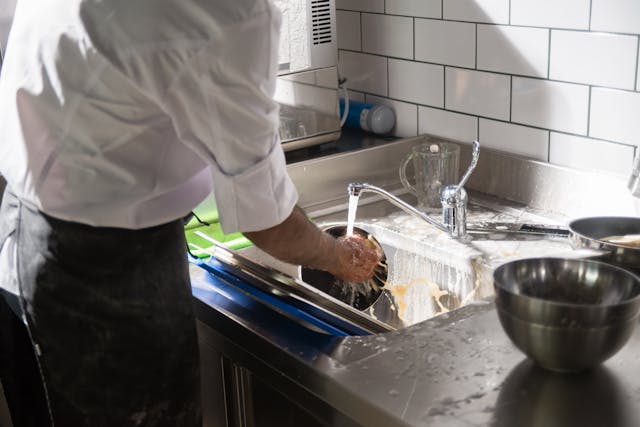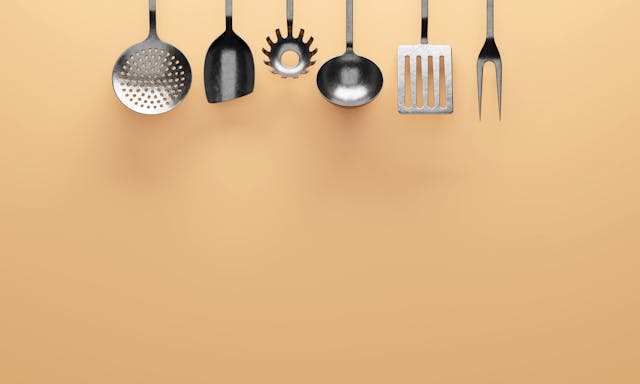Key Takeaways
- Preventive maintenance minimizes costly kitchen downtime by addressing equipment issues before they escalate, improving safety, efficiency, and compliance.
- Regular servicing, ranging from daily cleaning to quarterly professional inspections, extends equipment lifespan and keeps operations running smoothly.
- Building a maintenance culture among staff and partnering with professionals are essential steps to ensure reliability and long-term cost savings.

In a busy commercial kitchen, equipment breakdowns don’t just cause minor setbacks, they can bring operations to a grinding halt. For restaurant owners and kitchen operators, unplanned downtime means lost revenue, unhappy customers, and stressed-out staff. Maintaining kitchen equipment is important!
While it’s impossible to prevent every issue, the good news is that most major disruptions can be avoided with proper preventative maintenance. Whether you’re purchasing restaurant equipment or deep-cleaning what you already own, it’s important to know how often your equipment needs maintenance.
Regular preventative maintenance is the routine servicing and inspection of kitchen equipment before problems occur. Rather than waiting for something to break, kitchen operators can proactively keep their gear in peak working condition by assigning maintenance tasks and not waiting for equipment repairs.
This strategic approach not only reduces downtime but also extends equipment lifespan, improves kitchen safety, and ensures compliance with health regulations. Let our team at Greasecycle guide you through the preventative maintenance process and making a commercial kitchen maintenance checklist!
FIND OUT MORE ABOUT COMMERCIAL WASTE DISPOSAL
(919) 817-6792 Commercial Waste Disposal & Processing
Why Preventive Maintenance Matters
The commercial kitchen is a high-pressure environment. Equipment runs for long hours, often under intense heat, grease, and constant use. Over time, this daily wear and tear takes a toll on even the best appliances which is why having maintenance tasks is so important.
When something like a fryer or a refrigeration unit breaks down in the middle of a busy shift, it doesn’t just affect one dish. It throws off the entire kitchen workflow. Orders are delayed, food waste increases, and staff morale suffers. In worst-case scenarios, health code violations or fire hazards can arise from neglected kitchen equipment.
Maintenance tasks can fix this!

Preventive maintenance addresses small issues before they turn into big ones. It also allows businesses to schedule downtime at off-peak hours rather than scrambling for emergency repairs or regular maintenance during a lunch or dinner rush.
Common Equipment That Needs Routine Maintenance
Every piece of equipment in a commercial kitchen benefits from regular maintenance and attention, but some are more prone to issues than others.
- Ovens and ranges often accumulate grease and food particles that can clog burners or reduce efficiency. Routine oven cleaning and inspection ensure they heat evenly and safely.
- Refrigeration units must maintain proper temperatures to avoid food spoilage. Dirty condenser coils or worn-out gaskets can cause energy inefficiency and health code violations.
- Fryers require constant attention due to their exposure to oil. If not cleaned and serviced regularly, they pose a major fire risk and will degrade much faster.
- Dishwashers can develop limescale buildup or clogged filters that reduce cleaning efficiency and lead to sanitation issues.
- Ventilation systems, especially those involved in grease capture and exhaust, can quickly become a fire hazard if not cleaned and maintained. They also impact air quality for kitchen staff.
- Grills, mixers, slicers, and other prep equipment should also be checked for blade sharpness, motor function, and electrical safety.
How Often Should Maintenance Be Scheduled?
There is no universal preventative maintenance schedule that fits every kitchen, but a general guideline is to perform light maintenance daily and weekly, and schedule deeper professional servicing monthly or quarterly as well as regular maintenance tasks. The frequency depends on how often the equipment is used, the type of food prepared, and the manufacturer’s recommendations.
For example, daily cleaning and visual inspections are essential for restaurant equipment. This includes wiping down surfaces, checking temperatures, and ensuring moving parts of restaurant equipment are functioning properly. Weekly tasks might include deep cleaning grease filters or checking oil levels in fryers in order to reduce safety hazards like a grease fire.

More intensive inspections, such as cleaning condenser coils or inspecting gas connections, should be performed monthly or quarterly by trained professionals. These checkups can identify potential hazards such as grease buildup, fine-tune performance, and extend the life of each unit.
A great practice is to keep a maintenance log for each piece of equipment. This record helps track service dates, repairs, and parts replacements. It also helps kitchen managers identify patterns and predict when future servicing may be required.
CONTACT US TODAY FOR MORE INFORMATION
Reducing Downtime with Professional Support
Although in-house staff can handle daily upkeep and basic cleaning, many aspects of preventative maintenance require trained technicians. Partnering with a professional kitchen maintenance provider ensures your equipment is properly serviced using industry best practices.
Trained professionals have the tools and knowledge to assess hidden issues that may not be obvious to untrained eyes such as spotting grease buildup or ensuring proper drainage. They can also calibrate equipment for efficiency, which saves on energy costs over time.
Working with experienced service providers also makes it easier to comply with local fire codes, food safety laws, and insurance policies. Many jurisdictions require proof of regular servicing, especially for maintaining grease traps, ventilation systems, and fire suppression equipment.
Reliable service providers can also offer flexible maintenance plans tailored to your kitchen’s specific needs, ensuring you never miss a checkup for your commercial kitchen equipment maintenance.
The Cost of Inaction
Some kitchen operators hesitate to schedule preventive maintenance, thinking it will cost too much or take up valuable time. Ironically, the cost of ignoring equipment can be much higher.

Emergency repairs are always more expensive than planned maintenance. If a refrigerator dies overnight and food has spoiled by morning, the loss could be thousands of dollars in wasted product alone, plus repair fees and lost sales.
There’s also the risk of violating health codes or failing safety inspections, which can lead to fines or temporary closures. Legal liability may even come into play if broken equipment results in injury to staff or customers.
Preventative maintenance is not an extra expense. It’s an investment in business continuity and long-term savings.
How Preventive Maintenance Supports Kitchen Efficiency
Besides avoiding breakdowns, preventative maintenance helps kitchens run smoother. Properly calibrated equipment cooks food faster and more evenly. Well-maintained ventilation systems improve air quality and reduce heat stress for staff. Refrigeration systems that hold steady temperatures preserve food quality and reduce waste.
Efficiency is not just about speed. It’s also about consistency. In the restaurant business, consistency is key to customer satisfaction. If a grill doesn’t heat evenly or an oven runs too hot, it can ruin dishes and lead to poor reviews.
Well-maintained kitchens also reduce labor stress. When staff can rely on their tools working as expected, they can focus more on delivering high-quality service.
Building a Maintenance Culture in the Kitchen
Effective preventative maintenance starts with creating a culture of responsibility. Everyone in the kitchen should understand the importance of upkeep and know how to spot signs of wear or malfunction for your commercial kitchen equipment maintenance and avoid costly repairs.

Training staff on how to clean and inspect equipment correctly is a smart first step. Posting easy-to-follow maintenance schedules in break rooms or prep areas can also help.
Encouraging staff to report problems early, even if they seem small, prevents issues from escalating. For example, a loose oven door might seem minor until it causes a drop in internal temperature and uneven cooking.
When everyone takes ownership of kitchen health, preventative maintenance becomes part of the daily rhythm rather than an afterthought. Proper maintenance and a thorough inspection can save your kitchen equipment as well as your wallet.
LEARN MORE ABOUT WHAT WE DO
Bottom Line
Downtime in a commercial kitchen is not just inconvenient. It’s costly, stressful, and preventable. Implementing a preventative maintenance schedule is one of the smartest things a kitchen operator can do to protect their business.
By investing time and effort into routine inspections, professional servicing, and team education, restaurants and food service operators can avoid many of the pitfalls that lead to breakdowns and disruption.
If you need help, contact Greasecycle.




